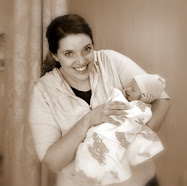NEW YORK (Reuters Health) - There is no reason why pregnant women at low risk for complications during delivery should be denied fluids and food during labor, a new Cochrane research review concludes.
Dr. Jennifer Milosavljevic, a specialist in obstetrics and gynecology at Henry Ford Health System, Detroit, who was not involved in the Cochrane Review, agrees that pregnant women should be allowed to eat and/or drink during labor.
"In my experience," she told Reuters Health in an email, "most pregnant patients at Henry Ford are placed on a clear liquid diet during labor which includes water, apple juice, cranberry juice, broth, and jello. If a patient is brought in for a prolonged induction of labor, she will typically be permitted to eat a regular diet and order anything off the menu in between different induction modalities."
Milosavlievic has "not seen any adverse outcomes by allowing women the option of liquids and/or a regular diet in labor."
Standard hospital policy for many decades has been to allow only tiny sips of water or ice chips for pregnant women in labor if they were thirsty. Why? It was feared, and some studies in the 1940s showed, that if a woman needed to undergo general anesthesia for a cesarean delivery, she might inhale regurgitated liquids or food particles that could lead to pneumonia and other lung damage.
But anesthesia practices have changed and improved since the 1940s, with more use of regional anesthesia and safer general anesthesia.
And recently, attitudes on food and drink during labor have begun to relax. Last September, the American College of Obstetricians and Gynecologists (ACOG) released a "Committee Opinion" advising doctors that women with a normal, uncomplicated labor may drink modest amounts of clear liquids such as water, fruit juice without pulp, carbonated beverages, clear tea, black coffee, and sports drinks. They fell short of saying food was okay, however, advising that women should avoid fluids with solid particles, such as soup.
"As for the continued restriction on food, the reality is that eating is the last thing most women are going to want to do since nausea and vomiting during labor is quite common," Dr. William H. Barth, Jr., chair of ACOGs Committee on Obstetric Practice, noted in a written statement at the time.
But based on the evidence, Mandisa Singata of the East London Hospital Complex in East London, South Africa, an author on the new Cochrane Review, says "women should be able to make their own decisions about whether they want to eat or drink during labor, or not."
Singata and colleagues systematically reviewed five studies involving more than 3100 pregnant that looked at the evidence for restricting food and drink in women who were considered unlikely to need anesthesia. One study looked at complete restriction versus giving women the freedom to eat and drink at will; two studies looked at water only versus giving women specific fluids and foods and two studies looked at water only versus giving women carbohydrate drinks.
The evidence showed no benefits or harms of restricting foods and fluids during labor in women at low risk of needing anesthesia.
Singata and colleagues acknowledge that many women may not feel like eating or drinking during labor. However, research has shown that some women find the food and drink restriction unpleasant. Poor nutritional balance may be also associated with longer and more painful labors. Drinking clear liquids in limited quantities has been found to bring comfort to women in labor and does not increase labor complications.
The researchers emphasize that they did not find any studies that assessed the risks of eating and drinking for women with a higher risk of needing anesthesia and so further research is need before specific recommendations can be made for this group.
SOURCE: Cochrane Library, 2010.



No comments:
Post a Comment